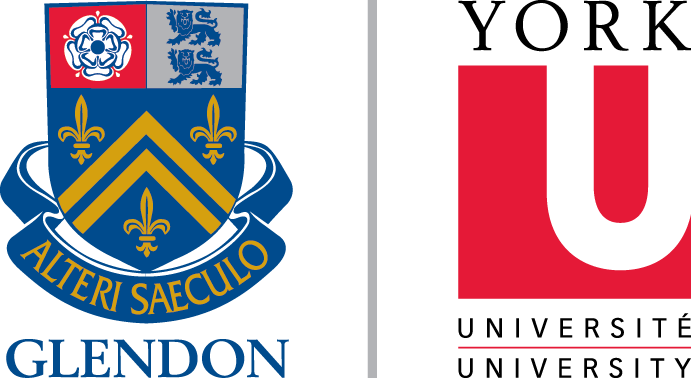A WORTHWHILE OVERVIEW!
The three roundtables organized for the Forum de la Francophonie torontoise provided a good understanding of how la Francophonie has developed in Toronto – and even in the province as a whole – in the areas of health, culture and education over the last half century.
Health
Participants reminded us that Toronto institutions offering [French services] in the area of health are relatively new; indeed, the health sector is the latest to arrive on the scene in the francophone community. According to participants, investment in this area is long overdue. It was also pointed out that, paradoxically, even though people have access to a broad range of services in French in Toronto, when they grow old and reach the most vulnerable point in their lives, access to health care in their language is almost impossible.
Could it be that the health field will become a place where francophones are assimilated into the English-speaking majority – especially if health initiatives for francophones are carried out in partnership with anglophone institutions? This was one of several issues raised during the roundtable. Participants said that francophones need to know how to organize themselves at the community level. But since the francophone community in Toronto is so dispersed, being everywhere and nowhere at the same time, we will have to know how to work with anglophone institutions in the case of state-of-the-art and highly specialized services. On the whole, however, we are currently witnessing an extraordinary time in Ontario, even though we sometimes see evidence of exhaustion among francophones who frequently end up with a double workload because they are bilingual.
Culture
In terms of culture , one participant expressed his view that we are now seeing the dawning of la Francophonie métropolitaine in Ontario. He said that the contributions of a diverse French-speaking community have made Toronto unrecognizable. The managing director of L’Express de Toronto remains uneasy, however, because the increase in population does not seem to have had much impact on everyday reality for his newspaper’s readership or in terms of attendance at entertainment events.
Franco-Ontarian authors feel that something is happening, especially when the current situation is compared to the 1970s. The Thêâtre français de Toronto is playing to younger audiences. However, links are not being made with school boards and schools to try to ensure that the works of our authors are studied now and on a sustained basis. Surprise was also expressed over the fact that French can be heard on Yonge Street, prompting one participant to say that quite a few francophones are settling in Toronto and that Toronto’s French-speaking community has gown in tandem with the City’s condominium towers. We are, of course, now living in a digital age, and that brings additional challenges. Franco-Torontonians need to know how to engage with the public on digital platforms and tools like YouTube; indeed, this is the direction that TFO is taking. We must never lose sight of the fact that Franco-Ontarians are a minority living among an anglophone majority. Consequently, they have to find effective ways to communicate who they are and what they do.
Participants also stated that we need to give the floor back to young people, a demographic for whom music is the universal language. Young francophones are bilingual and want to obtain their information through social media. We need to know how to speak the language of youth in French. Finally, the Culture Roundtable discussions concluded with a suggestion to organize a summit of francophone youth within the next year in order to give them a voice.
Education
The Education Roundtable provided its members an opportunity to gauge how far we have come since the first French-immersion school was established in Toronto in 1962. In terms of government action, Ontario has had the French Services Act since 1986. In 2007, the Act was amended to create the position of French Language Services Commissioner, which is analogous to the federal Commissioner of Official Languages – “but with fewer resources,” according to the current incumbent. The Ontario Commissioner is working on systemic plans. This work resulted in the publication of a report on Metropolitan Toronto’s French-language schools and another report in June 2012 on the status of higher education in French in Southwest Ontario. In this second report, the Commissioner observed a broad inequity in terms of access to university programs in French in Southwest Ontario.
Participants also noted that Glendon College relies heavily on the elementary and secondary schools to recruit students who have the potential to become professionals capable of working in both languages. We were reminded that the francization programs are still facing challenges since only 35% of young francophones continue in French as far as Grade 12. This means that they are missing out on opportunities to become integrated into the French-speaking community.
Some participants pointed out that today’s youth are proud of being bilingual and said that we must not be afraid of this new bilingual identity. There are young people who speak three or four languages; they are extraordinarily enriched as a result. Finally, while some people do accept franglais, others oppose it, feeling that they need to do more than simply function in French: they wish to do so in French of high quality.
In conclusion, these three roundtables provided quite an exceptional overview of la Francophonie in Toronto, including the progress that has been made and the challenges that lie ahead.
By Michel Héroux
Moderated by Gilles Marchildon, the Health Roundtable was made up of Lise-Marie Beaudry, Gisèle Hauser, Yolande D. Pitta, Guy Proulx and Jean Roy.
The Culture Roundtable was moderated by Marcelle Lean and included Alain Baudot, François Bergeron, Claude Guilmain, Guy Mignault, Glenn O’Farrell and Robert Renaud.
Françoise Mougeon was the moderator of this roundtable, which included François Boileau, John Godfrey, Betty Gormley, Ghyslaine Hunter-Perrault and Michael Salvatori.


